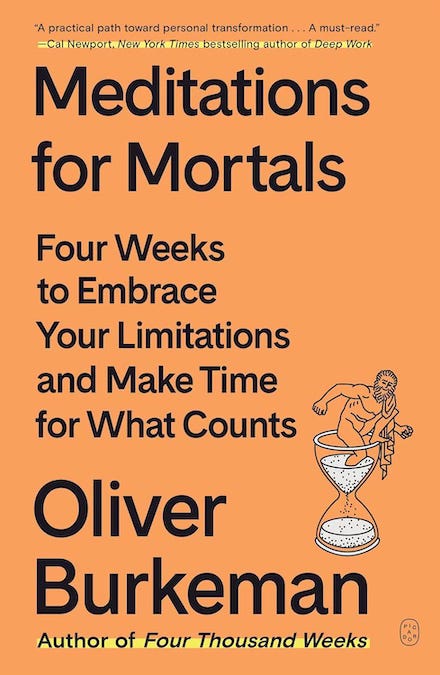A News Junkie’s Survival Guide to the Trump Era
How to remain responsibly informed without becoming deranged
THESE ARE TRYING TIMES for news junkies. Especially for those not happy with so much of the news and for those sensitive types easily bothered, upset, angered, or panicked by much of the news – those who are incapable of reading the news without having some kind of emotional reaction to what is happening. (One imagines if you are a lover of chaos, stupidity, rapists, dictators and Fascism, then these might be the best of times. Goody for you.)
For some, the need to know everything is an instinct honed by years of habit. I began my own news-reading practice as an eight-year-old schoolchild. Before work (his) and school (mine), my father and I would have breakfast together – bowls of cereal and milk at the dining-room table – while sharing sections of the New York Times, typically the business section for him and the sports section (and later on, arts and entertainment) for me. Where I grew up, there was also an excellent regional afternoon newspaper, which typically arrived about the same time I did back home after school. It was in the pages of Newsday where I was introduced to some of the best rock critics of the era, people like Robert Christgau, Dave Marsh, and later on Wayne Robins. Christgau even wrote back to me the few times I wrote to him taking issue with a review he wrote – the equivalent of Marlon Brando personally replying to a piece of fan mail from an aspiring actor (although as I said, mine wasn’t even fan mail, but a teenager’s sincere wish to engage in a discussion – OK, an argument -- over our difference of opinion about Cat Stevens and Seals & Crofts).
BUT I STRAY …. My attention a few years on was drawn to the news sections, whether it be stories about the war in Vietnam, Watergate, Israel, the Long Island Lighting Company (LILCO), or the occupation of northern Cyprus by Turkish armed forces. I wrote a letter to the editor on this last topic, thereby snaring my first publication credit with Newsday at age 15. (Years later, I would write for its then-vibrant weekly book review section.) The Watergate scandals and subsequent hearings, and the resignation of President Richard Nixon, made daily newspapers read like serialized stories, or novels, with great characters – G. Gordon Liddy, John Dean, John Ehrlichman, Martha Mitchell – and plot-lines – the “third-rate burglary” of Democratic headquarters, the “Plumbers,” attempts to cover up the crime, the discovery of a surreptitious taping system at the White House, the enigmatic 18-minute gap in a key recording (an obvious excision of a damning conversation) … You couldn’t make this stuff up. I was hooked, and with ever-expanding interests in national policy, global politics, local reporting, and yes, eventually, the business section, I became the news addict that I am to this day, in significant part accounting for my chosen profession.
FAST FORWARD from my teen years to around 2016…. I wrote that previous sentence and then became stuck for the next one. Because it’s painful even just to think back to that time, when through a confluence of developments – the 24-hour news cycle, the explosion of outfits purporting to report real news, the invitation to manipulate that reporting offered by the Wild West of social media, and an evil wannabe dictator who knew enough about show business to take advantage of all these developments and use them to transform his reputation from tacky reality show host and perennial bankrupt to a serious candidate for the presidency of the United States – Donald Trump wound up sitting in the Oval Office (when he wasn’t off golfing at one of his country clubs or hiding in the private White House dining room eating McDonald’s hamburgers and watching Fox News on TV, which was apparently how he spent most of his time).
The introduction of the car-wreck presidency, which saw content produced on a daily basis guaranteeing that Trump would be the constant top story at all hours of the day and night for four years (and then some), produced in many what MAGA supporters and the president himself called “Trump Derangement Syndrome.” They use the term as a disparagement, but any phrase that includes the words “Trump” and “derangement” is apt and should be co-opted by his opposition, even as they try not to allow Trump to make them deranged. Because the derangement, of course, belongs to Donald Trump himself, and feeling deranged by his words and actions is, in some ways, a wholly proper emotional response to the destruction of the civic society for which he (temporarily) stands.
I force myself to think back to those four years and I remember the daily insults – often aimed at specific individuals, even ordinary citizens, insults aimed at our intelligence, but also insults aimed at the civil norms of our democratic society – and how they spiked our blood pressure and stressed us out and made us fearful and angry and yes, sometimes, how it led to organized forces of opposition against certain policies or more generally against the president’s (and all his men’s) desire to destroy everything that was good about the American republic and replace it with everything that was bad about our history. Make America Great Again meant (and means) bring back racism, hatred of immigrants, abuse of women (including taking away their right to make their own decisions about what to do with their bodies), manipulation of markets, graft, bribery, colonialism, exploitation of labor, and repression of dissent. Never mind the Constitution or the code of law that stems from it; how many army divisions does the Constitution control (as someone once asked of the Pope)? And if the army won’t cooperate, an executive action, one stroke of a pen, could (and likely will) deputize MAGA militias like the Proud Boys as agents of the Trump autocracy, his own personal army along the lines of Hitler’s Stormtroopers. You think I’m being deranged about this? Then how do you explain why Trump just released from prison nearly 2,000 criminals convicted of assault on the seat of the government -- and in many cases assault on law enforcement officers and conspiracy to commit murder and the overthrow of the U.S. government? Le déluge, il est arrivé.
IT IS 2025, and here we go again. Only this time it’s worse. With wars in Ukraine, the Middle East, and elsewhere, the world is a more dangerous place (requiring skilled diplomacy and not the cowboy antics of someone who sees the world through the Cold War prism of 1955). The government is largely being led by incompetents chosen for their resemblance to or even their experience as right-wing TV personalities. The second tier of government employees, including inspectors, department heads, and those who carry out the work of government at the highest levels, have either been summarily dismissed without cause and replaced by those pledging loyalty to the man who would be dictator and not to the US Constitution. And Trump – despite his belief that he will be president for life – is not bound by the need to consider his actions in the context of yet another campaign for another term in office. He is free to be the Maximum Destroyer, with no danger of losing power or going to prison. In the end, his last action will of course be to preemptively pardon himself for all crimes he committed.
My son pointed out to me yesterday that it has only been a week plus two days since Donald Trump has been president. I don’t know about you, but it already feels like it’s been a year. Like so many of you, I ardently believe we cannot put our collective heads in the sand and ignore what is happening. But we do need some sort of strategy whereby we keep close tabs on what is happening while finding a way to do so that does not allow it to take over the bulk of our thinking and feeling. Demagoguery is insidious and it preys upon the weak and the easily persuadable – just look at who is in the White House. But it also chips away at the brains and the souls of the strong. This dynamic cries out for a bold strategy for how to protect our very minds and spirits from derangement.
I RECENTLY STUMBLED upon these words of wisdom:
It was in 2016, after the election of Donald Trump and the Brexit referendum result, that I first began to notice a bizarre effect of all this in myself, and more acutely in certain friends and acquaintances. It wasn’t simply that people were addicted to doomscrolling (although they certain were). It was that they’d started ‘living inside the news.’ The news had become the psychological center of gravity in their lives – more real, somehow, than the world of their home, friends, and careers, to which they dropped in only sporadically before returning to the main event. They seemed significantly more personally involved in whether Trump would fire his Secretary of State, or who he might nominate for the Supreme Court, than in any of the local or personal dramas unfolding in their workplaces or families or neighborhoods. Their motives were generally good, so it seems a little churlish to point out that this behavior in no way makes the world a better place. Living inside the news feels like doing your duty and being a good citizen. But you can stay informed on ten minutes a day; scrolling any more than that risks becoming disempowering and paralyzing, and certainly eats up time you could have spent making a difference. … In other words, pick your battles, and don’t feel bad about doing so. By embracing your limitations in this way, you’ll be in a position to do more to fight the battles you do pick, and also thereby to feel better about yourself, than the person who tries to care about everything. (Who may be largely focused, in any case, on trying to show that he or she cares about everything.) – Oliver Burkeman, from Meditations for Mortals (FSG). [emphasis mine]
I don’t have any answers. I blow hot and cold: I believe we have an obligation to ourselves, our loved ones, our local communities, our nation, our world, and to history to keep apprised of what is happening in order to choose when, where, and how to resist the incipient destruction of all that is good about our polity. But we will be in no position to resist if we have allowed ourselves to succumb to the projection of the mental chaos that inhabits the irresolute man who sits behind the Resolute Desk. I have no magical formula. But I do have a few suggestions for starters.
HOW TO MANAGE THE INSANITY OF ANOTHER TRUMP PRESIDENCY:
1. Put your phone down. Stop checking news updates and email and social media every five minutes. If you have to, set specific controls or times for when you look at your phone.
2. Limit social media consumption. Same as above. Don’t incessantly check Instagram or Facebook. Twice daily for five or 10 minutes is more than enough. There’s just not that much of interest there. And remember – every time you turn your attention to social media, you are giving them exactly what they want: your attention. It’s based in sophisticated science surrounding human behavior, and when you look at social media, you have temporarily turned yourself into a lab rat.
3. Limit news intake. This is a difficult one, especially for news junkies like me. With so many magazines and newspapers updating content on a continual basis, with so many great writers and thinkers sharing their thoughts in Substack columns sent to your email inboxes, one could easily do nothing but read news and commentary all day long. Don’t do it. Find a few trusted sources and, again, set aside some small but reasonable time each day (or twice a day) to spend with your well-curated news sources. And take advantage of those who do your curating for you (like I do once a week with The Rogovoy Report).
4. Follow other news stories: It’s a big world out there, and although most news reporting tends toward the negative, stories about far-flung places and positive developments abound. Personally, I like reading about the arts, especially books, and a lot of what I read (or view) is based upon what I read about in essays, articles, and reviews. (Call it an occupational hazard – or obligation – if you must.)
5. Read books, especially novels. Movies and TV can be helpful, too. But nothing beats living inside the world of a well-written novel – especially ones written with wit and humor. It gets you outside of your own head, your own world-view, and opens you up and connects you to a parallel universe. It even breeds empathy and compassion.
6. Listen to music. With focused attention only on the music. Stop multi-tasking!
7. Stop multi-tasking. I’ve seen some of the best minds of my generation destroyed by multi-tasking.
8. Go outside. Take walks. Even short ones. Exercise, even if that means spinning your arms around in wide circles and then bending at the hips and touching your toes. Just move.
9. Recommit yourself to hobbies: Crafts, playing music, journaling, playing sports, doing crossword puzzles.
10. Recommit yourself to friends and loved ones. Remember calling people just to say hello and chat? Remember going out with a friend for coffee or a beverage? Do it, regularly.
11. Recommit yourself to your community. Try doing one thing that connects you with other people where you live, whether it be volunteering, sitting on a board, joining a club, or joining a faith group.
12. When you feel yourself becoming deranged, walk away. That’s it. Just hoof it, either literally or figuratively. Don’t be a victim; don’t fall into the trap. It’s where they want you to go. Resist!
What are your recommendations for staying sane in an insane world?
In solidarity,
“Well, I don’t want to go on the roof.” -- George Harrison
Hey, did you like this edition of Everything Is Broken? If so, please consider clicking on the “LIKE” button at the very end of this message. It matters to the gods of Substack.
Roll Call: Founding Members
Anne Fredericks
Anonymous (9)
Susan Bang
Erik Bruun
Jane & Andy Cohen
Nadine Habousha Cohen
Fred Collins
Ian Feldman
Fluffforager
Benno Friedman
Amy and Howard Friedner
Jackie and Larry Horn
Richard Koplin
Paul Paradiso
Steve and Helice Picheny
David Rubman
Spencertown Academy Arts Center
Elisa Spungen and Rob Bildner/Berkshires Farm Table Cookbook
Julie Abraham Stone
Mary Herr Tally
Daniel Wollman and Debra Pollack







Seth, this is a terrific round-up of ways to respond -- and not respond.
I felt gobsmacked after the election. How could this be?! Again?! It lived in my thoughts like a hateful and noisy upstairs neighbor, constantly screeching for attention. I was too clouded to work, and the grim day of the inauguration curdled things further. And that's exactly what trump and musk and miller and leavitt, bless her heart, want. Our attention, our dysfunction, our exhaustion. A few days ago, I saw the teaser to a NYT story with stephen miller talking about how the whole goal was to overwhelm--that his belief is that MAGA opponents don't have the bandwidth to resist. Oh, yeah? Wrong. The fog has cleared and by golly, I have plenty of bandwidth. I'm just applying it better now.
In Solidarity,
Marc Jennings